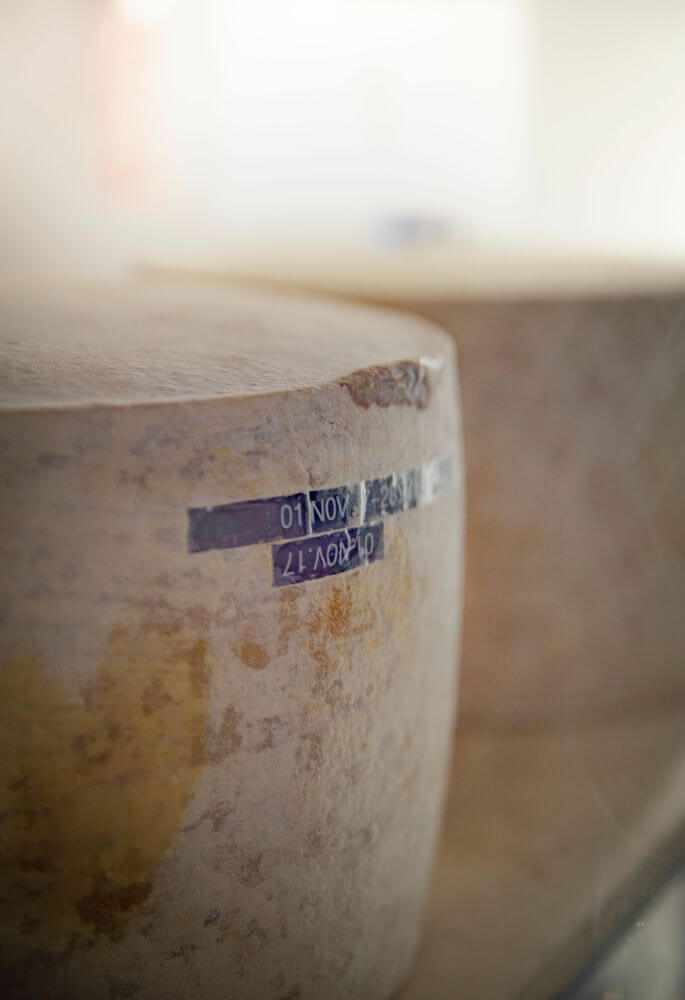 There are several methods to store cheese. Generally speaking, store cheeses on the bottom shelf/drawer of the refrigerator.
There are several methods to store cheese. Generally speaking, store cheeses on the bottom shelf/drawer of the refrigerator.
If cheese is unopened, it can be stored for several months. Once opened, it can be stored for approximately one month, if stored properly.
Unused portions should be wrapped in a clean layer of plastic wrap. For best results, replace the plastic wrap every couple of days so the cheese maintains its freshness.
For a softer cheese, wrap the cheese in wax paper or plastic wrap. No cheese paper, use parchment or wax paper. Make sure to replace the plastic wrap every couple of days so the cheese doesn’t become soggy or moldy. Very soft cheeses should be kept in their natural liquid, but they will not last as long as their hard counterparts.
To properly store cheese buy it from a reputable cheese deli and use the packaging provided. If you’d like to make your own cheese packaging, you can purchase plastic bags from a supermarket or grocery store. You can also use wax or parchment paper. Wrap the cheese in neat creases, allowing air to circulate. Then, wrap it in a second paper. The packaging should be reusable, since cheese needs oxygen and air to remain fresh. Label the packaging with the cheese name, type and date of purchase.
When you purchase a new cheese follow the manufacturer’s instructions. You’ll be able to detect a moldy rind a few days after purchasing the cheese. If you purchase a fresh cheese, you should also consider a longer storage period. The longer the cheese is stored, the more likely it will be delicious. Cheeses have unique flavors and are often difficult to store properly.
If you don’t want to buy expensive cheese wraps, you can use wax paper or parchment paper. Cheese paper can be purchased relatively inexpensively and may even be free from a cheese shop. Alternatively, you can also cover your cheese with a double layer of paper, which is ideal because it offers breathability while preventing the cheese from drying out.
Different types of cheese require different storage techniques. Feta, for instance, is normally sold in blocks in brine. If you don’t plan on using the feta, you can store it in its brine. It can be kept for a month or more, although water will draw the salt out of it. Store feta in the refrigerator and keep it in its brine.
While cheese is best when it’s fresh, it can be spoiled or become moldy if stored improperly. If you don’t want the cheese to go bad, use cheese paper or parchment paper.


